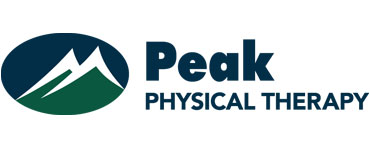By Nicholas Maggio, PT, DPT, Lancaster, PA Center
What manifests as a headache actually could be coming from your neck. It’s what is known as a cervicogenic headache.
Luckily, cervicogenic headaches can be reduced, eliminated, or prevented with physical therapy exercises at home.
A cervicogenic headache is specifically when your upper cervical spine – your neck –sends pain into your head via the local nervous system.1,2 These headaches can begin rapidly with an injury or can develop over time from prolonged poor posture, degenerative arthritis, or decreased cervical muscle strength or length.
The workplace is a major culprit, specifically with jobs that require repetitive head movements, frequent heavy lifting, or prolonged sitting postures at a desk or computer screen. Many of these factors can be seen at home, as well, with the heavy lifting of yardwork, bending and reaching into cabinets, or simply sitting with poor posture while watching television. Even sleeping can put your neck into a poor position and create a headache.
How to address your cervicogenic headache
First, it is important to identify whether your headache truly is coming from your neck. If you do not have neck pain, have never had a neck injury, or do not participate in any of the previously mentioned activities, then you may have a different type of headache and the following exercises may not be appropriate. If you are not sure, your doctor or physical therapist can help you differentiate.
Patients who experience cervicogenic headaches often demonstrate similar underlying factors that could include, but are not limited to forward head posture, limited neck range of motion, poor flexibility surrounding the cervical spine, and poor deep neck flexor strength.3 It is important to note that these factors vary for everybody.
Please see the below video for demonstrations of the following exercises that can help address the underlying causes of your cervicogenic headache.
- Sitting cervical retraction with forward head nodding overpressure
- Supine deep neck flexor facilitation
- Corrected posture holds
- Doorway pectoralis major stretch
- Thoracic spine extensions over a small ball
- Scapular Squeezes
- Supine snow angels
How to prevent future headaches
Work demands and activities at home can predispose you to developing poor habits and posture. These tips will help you avoid injury, improve your posture, and reduce your risk of developing a cervicogenic headache:
- If you must repetitively turn your head in each direction during the workday, incorporate full body rotation rather than just neck rotation. The use of a rotating office chair or stool can help.
- If you must sit for prolonged periods of time at a desk, use a lumbar spine roll to align your spine in a more neutral posture. For more suggestions, please refer to the Setting Up Your Workspace for Proper Posture article and a video of one of our physical therapists demonstrating “workplace posture for cervicogenic headaches”
- If you have to lift repetitively or lift heavy objects such as boxes, bend at your knees and squat to the floor versus bending at your back. Bending at your knees will help to keep your spine in a more neutral and safer position with improved posture.
- If you are required to lift objects at home or work, keep the object you are lifting close to your body as this will reduce strain on your spine.
- When sitting for prolonged periods at home, avoid soft couches or chairs that you sink into will encourage poor posture. Instead, sit on a firmer surface with a lumbar roll for better spinal alignment.
- When sleeping on your back or side, only use enough pillows (often one) to keep your neck neutral and not bent to either side. Sleeping with too many pillows can shift your head forward or to the side and place strain on the neck throughout the night.
Cervicogenic headaches are manageable if properly identified and addressed. A physical therapist can help with this process. Please contact your local Drayer Physical Therapy Institute center if you suspect you have a cervicogenic headache and would like more specific physical therapy intervention on your way to reduced or abolished headaches!
Reference List:
- Bogduk N, Govind J. Cervicogenic headache: an assessment of the evidence on clinical diagnosis, invasive tests, and treatment. Lancet Neurol 2009; 8:959.
- “Cervicogenic headache: the basics,” American Migraine Foundation website, accessed March 2018
- Page P. CERVICOGENIC HEADACHES: AN EVIDENCE-LED APPROACH TO CLINICAL MANAGEMENT. International Journal of Sports Physical Therapy. 2011;6(3):254-266.

